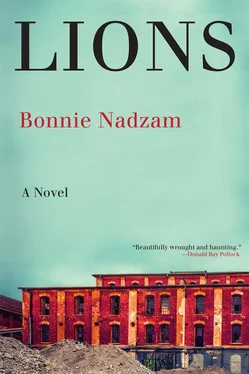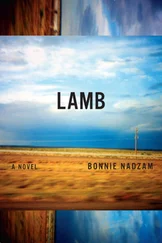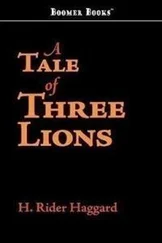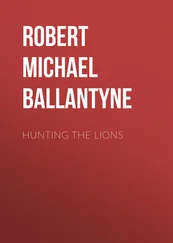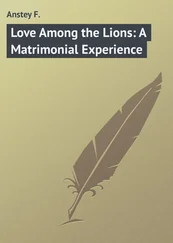“She’s been sitting there since dinner,” May said. “Poor kid.”
“John was like her dad,” Boyd said.
May gave him a look. “I should have been so lucky.”
Boyd glanced up at her sharply and Dock and Chuck laughed.
“She must be sick about it,” Dock said. “That and Gordon.”
For a few minutes, no one spoke. They could feel the weight of the news between their shoulders. John Walker, gone. They lifted their drinks, eyes fixed in the middle distance.
“It doesn’t bode well,” Boyd finally said. “Boy leaving as his father’s dying.”
“It does seem a little irresponsible,” Chuck said. “Not like Gordon.”
“Aw, give him a break,” May said. “How many of you sat still to watch your own fathers die?”
At the end of the bar, Jorgensen cleared his throat. The old man had dressed up to come into town, as he always did, in a stiff white-collared shirt and a wool vest and ironed Wranglers. His thick, white hair was as bright as a flare in the dim bar. “Never saw that boy without his dad,” he said, his hands trembling around his beer. “Followed John around like a shadow.”
That wasn’t natural either, they said.
No young man felt that way about his own father.
Makes you wonder what’s wrong with the boy.
“It’d be work,” Dock said. “I’m sure that’s where Gordon’s gone. They have customers all over the county.”
Boyd made a sound in his nose. “Customers? Around here? No disrespect,” he said, “but I don’t understand what all of John’s work was for. I mean no offense.” He shook his head.
No one said anything. Dock stared at the black window, dark as film. Jorgensen gripped the bar.
Boyd went on. “Guy from some big fabrication plant in Chicago passed through couple three years ago driving his kid out to college. Said he’d never seen work like John’s, and he didn’t even have the most up-to-date gear. Said John could have started at a hundred thousand a year in Denver, easy. Aerospace. Military. Hell. Lots of natural gas pipeline getting started up in Wyoming.”
“Heck, Boyd,” Dock said gently. No one really had to explain. John Walker never invested a goal — like finishing a harrowing frame or hog kennel — with the power to give purpose to his day, let alone meaning to his life. Rather, everything he encountered, each drill, each small project, was itself his life for the duration of the project. His was not the work of a man who believed in or even thought about the future. He looked ahead only as each project required planning, even as he worked on the task at hand with a kind of myopic ceremony.
“Five hours he’d have me at rust removal on a piece of steel no larger than my hand,” Dock said, and lifted and opened his huge white hand.
“Maybe he was autistic,” Boyd said.
“That’s an ignorant remark,” Dock said.
“Sorry. Sorry, Dock.”
“How was Georgie when you left her, May?” Chuck asked.
“Sleeping in one of his shirts, in his old chair. I invited her to come stay with us, but often as not our house is empty too.”
“What they should call this place,” Jorgensen said, staring straight ahead at the shelves of bottles. “Empty. Whole God-blessed place.” He broke blessed into two syllables. “I can’t remember ever seeing this town anything other than empty. The past was great, they said. The future will be great, they said.” He gave them a look of wonder. “None of it was true.”
They all grew quiet. Everything was heavy. Their beer glasses. The boots at the ends of their feet. Their own hands.
“You know what I think it is with Gordon,” Boyd said, picking up Dock’s empty. Boyd grabbed a clean pint glass and pulled another and set it in front of Dock. “Come on,” he said. “You’re all thinking the same thing.”
“Oh, shit,” Chuck said. He drained his own beer and set the glass on the inside of the bar. “There’s no Boggs any more than there’s a Lucy Graves.”
“Listen,” Boyd said. “Everyone chose that first Walker to get the dead guy out of town and take care of it. And then his son, and his son’s son, and his son’s son’s son.”
May handed Chuck a new beer. “Last one for me, Maybelline,” he said.
“He was an Indian,” Dock said. “Right?”
Chuck shook his head. “You guys are always seeing Indians where there are none, and never see the ones who actually live around here.”
“Name like Boggs?” Boyd ignored Chuck. “He was a trader. He was visiting the territory, and got trampled, or shot. Supposed to have a tombstone somewhere out here. Homesteaders’ cemetery maybe. Have you ever seen it?” he asked Chuck.
“Not me.”
“You’re all idiots,” May said. “This is the real world, hello.” She knocked on the bar. “There is no Boggs, and Gordon is off grieving somewhere.”
Boyd ignored her. He rubbed his mustache. “So the Walkers picked up the sick guy. Or the dead guy, whatever. Forced to tend him what, five generations? Bring him firewood, blankets, canned food. Maybe, hey,” he raised his glass, “couple beers now and then. And starting this week, it’s Gordon’s turn.”
“It’s why they never leave,” Dock said.
“And they could have. I’ve heard John has a hundred thousand dollars saved that he never spent.”
“Not true,” Chuck said. “Me and Emily just bought Georgie’s groceries. He didn’t leave her a thousand dollars. Where would he get the money? No one paid him for his work.”
“People only owe us what we imagine they’ll give us,” Dock said. There was a silence. “My father used to say that.”
Boyd pulled another beer for himself. “And what happens,” he went on, “if the Walkers stop? If no one takes care of the guy?”
Chuck pointed his beer at Boyd. “Maybe the task falls to you, Boyd.”
“Hell, I’m not taking care of any dead guy. Someone holds the town together by keeping the demon out, it’s not going to be me.”
“Anyway, poor Georgie. Somebody’s going to have to look after her.”
Chuck looked at Dock. “You got to make Gordon go,” he said. “He’ll be wanting to stay. He’ll feel like he has to.”
“Oh, he’ll go,” Boyd said. “He won’t let that girl head off into the world without him.”
“Gordon will never leave,” Jorgensen said, staring at the label on his beer bottle. They all looked down the bar at the old man. “It’s an interesting story,” he said, “for a town like this. In times such as these.”
“What, Boggs?”
Jorgensen raised the bottle and drank, then set his empty on the bar. “But the next man I hear associating that kind of garbage with John Walker and his family, I’m going to break his nose.”
Boyd’s face grew hot. “Beg your pardon, Mr. Jorgensen.”
“Heck,” Jorgensen said, “don’t beg mine.”
May went down to where the old man was sitting and took the empty bottle. “You want another one?”
He raised his hand. “Not for me.”
“We see you didn’t plant any wheat,” she said. The men watched her. “I heard Mrs. Jorgensen wants to go.”
The old man nodded.
“What are you going to do?”
“Know how Dorrie and I have managed fifty-one years of marriage?”
“How’s that?” May asked. Everyone was listening.
“Two words: Yes, dear.”
The men laughed.
“Minot, I heard. Is Dewayne there?”
“He and Lisa have an extra room.”
“Well, Mr. Jorgensen,” Chuck said. “We’ll be sorry to see you go.”
“Well.” The old man stood, his blue eyes rimmed with red, and looked at each of them in turn. “I can make more leasing my water rights than I can growing wheat,” he said. “There’s just too damn much surplus. And too little water. Tell me, how do you figure that?”
Читать дальше
